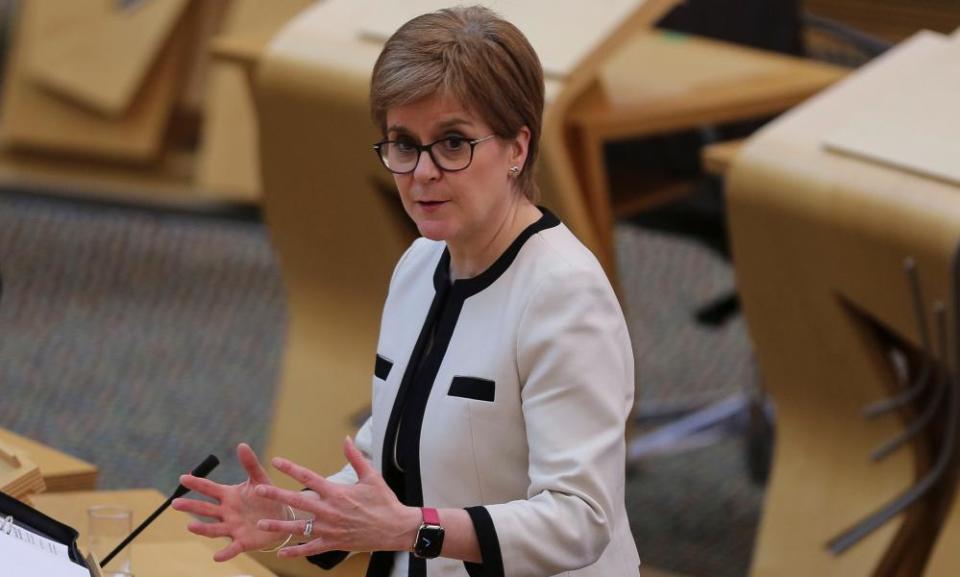The Guardian view on the SNP feud: the personal is political

When Alex Salmond finally gives evidence to a Scottish parliament committee in Edinburgh on Friday, one thing should become diamond clear. The argument between Mr Salmond and Nicola Sturgeon is not, as many nationalists have claimed, some second order distraction from real politics, got up by the evil Tories, the wicked English or the Westminster press. Instead, the row about Ms Sturgeon’s role in the sexual misconduct charges that were either thrown out or dropped against Mr Salmond last year is now a full-on power struggle. It pits the two dominant figures in modern Scottish nationalist politics against one another. It is a battle that one, and perhaps both of them, will lose.
Larger issues hang on the outcome. These stretch beyond individual careers, through the credibility of the Holyrood parliament and the workings of the Scottish National party government, and into the prospects of Scottish independence and the future of the United Kingdom. Arching across them all, often barely heard amid the sound and fury of the clash of Scottish political titans, the feud will decide whether modern Scotland takes the trauma of sexual harassment as seriously as it claims to do – and as it absolutely should. The women at the centre of the dispute were brave. They have been trolled in Scotland’s virulent social media for doing so. They must not be betrayed.
These are fundamental issues for Scotland. But the timing of Friday’s hearing and the one that Ms Sturgeon will attend next week is important too. Mr Salmond’s attempt to show that Ms Sturgeon and her lieutenants abused due process in 2018-20 is coming to a head on the eve of May’s Holyrood elections. These elections will be fought on the issue of a second independence referendum. The polls say that the SNP is on course to win, and perhaps win a second referendum too. On Thursday, an Ipsos Mori poll showed dents in support for Ms Sturgeon and independence, though both she and it, as well as the SNP, still enjoy enviable ratings. Events of the next few days will shape both contests, as will a separate report, due in March, on whether Ms Sturgeon broke the ministerial code. The vigour of Holyrood’s question time on Thursday shows how much is now at stake.
The SNP has been in power for 14 years, led throughout by either Mr Salmond or Ms Sturgeon. In more ordinary times, the zeal with which Mr Salmond is pursuing his search for revenge and the dead bat that Ms Sturgeon has deployed (aided by her highly centralised party) – plus a distinctly vulnerable SNP record on education and care homes – might suggest electoral change is likely. That is far from the case. Ms Sturgeon has won backing for her competence and caution in the pandemic, though her record is not as good as her communications skills. Her version of events in the feud with Mr Salmond commands more support from SNP voters than his. Scotland’s Tories, meanwhile, struggle to distance themselves from Boris Johnson and Brexit. Labour is about to choose its third leader in six years.
There are some signs of a new volatility in Scotland, to which the coming events will contribute. Yet this should not be either oversimplified or exaggerated. It will not do for the UK government to imagine that it can simply sit the next few months out and wait for the SNP to founder. Mr Johnson is unpopular in Scotland (though a bit less unpopular than before the vaccine rollout). He will probably try to keep out of Scottish politics until after May. But he will soon need a plan once the elections are over, whatever the outcome. The plan must recommit to the permanence of devolution and avoid giving ground to the centralising unionism that many English Tories now arrogantly prefer. Mr Johnson may hope to bury the independence movement. He needs to avoid giving it fresh life.

 Yahoo Finance
Yahoo Finance 